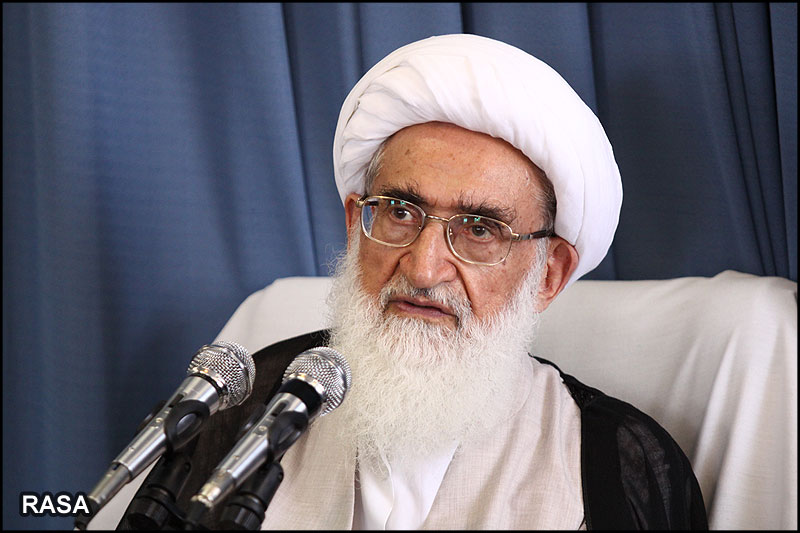
Rasa News Agency reports - Today, Ayatollah Hosein Nouri-Hamadani met with a group of missionaries who will be preaching in various mosques throughout Iran during the days of i’tikaf. He explained that their mission to strengthen spirituality, faith, beliefs and Islamic morality in society is very essential to the mission of spreading the message of Islam. “I’tikaf is one of the best [Islamic] practices which increase one’s spirituality,” he recommended.
I’tikaf is an Islamic practice consisting of a period of retreat in a mosque for a certain number of days in accordance with the believer’s own wish. It is most common during the month of Ramadhan, especially the last ten days.
“If the people of Iran did not have a sense of spirituality, the Islamic Revolution would not have the strength that it does today. The soldiers protected and strengthened their sense of spirituality and morale on the battlefield. We need to prepare [ourselves] for jihad. We can benefit that from wills and memories of the martyrs to promote the culture of martyrdom in our country. The youth of today who go for i’tikaf are the same youth who went to the battlefield yesterday,” His Eminence stated in remembrance of those martyred during the brutal eight-year long Imposed War (Iran-Iraq War).
Ayatollah Nouri-Hamadani explained that missionaries have an important duty to promote and strengthen unity between the Sunni and Shi’ah schools of thought. “The arrogant powers of the world have a plan to promote Shiaphobia and Islamophobia and they seek to destroy us. Strife between the Sunni and Shi’ah schools of thought weakens Islam and allows the enemies to become stronger and realize their goals,” he emphasized.
Ayatollah Nouri-Hamadani explained to the missionaries that their duties in educating, training and guiding the people are very important. “The people see you dressed as the great scholars of the past and acknowledge you as their guides. There is a tradition narrated from Imam Ja’far as-Sadiq (A) which states: ‘the scholars are the heirs of the prophets.’ This tradition means that the scholars of today must act as the prophets used to and continue on their path. They must act with kindness, humility and compassion in order to attempt to solve the problems of society,” he said.
He emphasized that preaching of the Islam must be performed in the appropriate context of the modern world. “We live in a sensitive time, and the Islamic world looks to our revolution. This makes our responsibilities more important – even more important than during the time of the tyrants,” he explained.
The clergy should always strive to improve their knowledge. He narrated that the Lady Fatimah az-Zahra (A) said that she heard from her father, the Prophet Muhammad (S), that “the scholars of our Shi’ah are considered a valuable prize that God has granted to them. This generosity is proportional to the knowledge of the person. This means that the more knowledge a person has, the more blessings they will receive.”
111/112